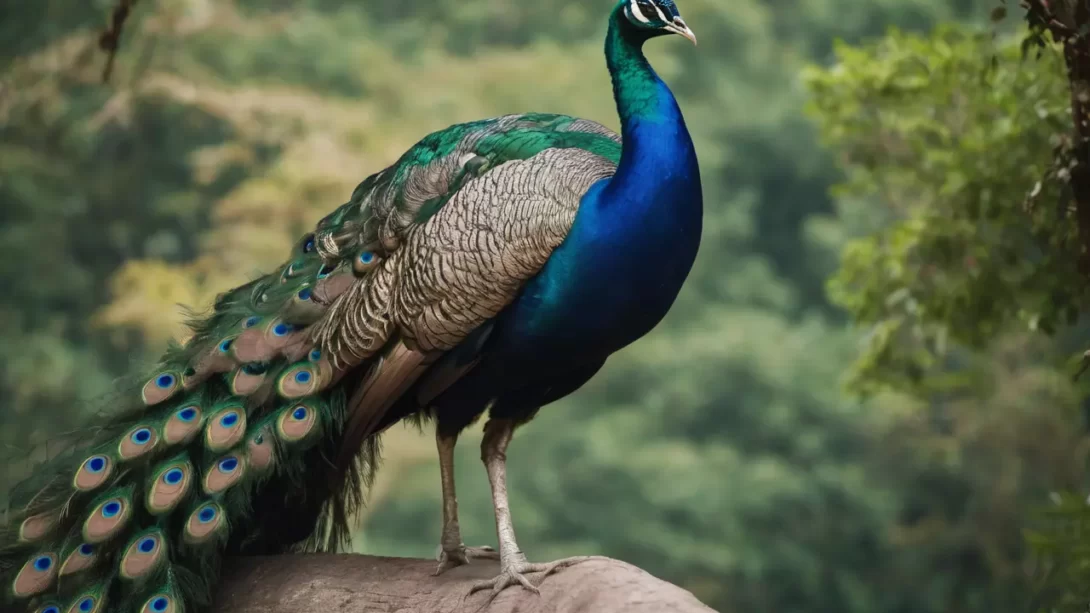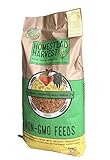Peacocks, with their vibrant plumage and regal appearance, are captivating birds that have found a place in many gardens. However, their beauty comes with a responsibility – proper care. This simple guide will help you understand the basics of caring for peacocks, ensuring they thrive in your garden. From providing the right shelter to meeting their dietary needs, this article covers the essential aspects of peacock care, so you can enjoy their beauty while keeping them healthy and happy.
Housing and Shelter
Creating a safe and secure shelter for your peacocks is paramount. Peafowls need protection from the elements and predators. Consider building a suitable coop or aviary with sturdy walls and a roof. Ensure that the shelter is well-ventilated to maintain good air quality. Peacocks are excellent fliers, so make sure the enclosure is tall enough to prevent them from escaping. Providing perches and nesting areas inside the shelter is also important for their comfort. Remember, a well-structured shelter will keep your peacocks safe and content.
Feeding Peacocks
Feeding your peacocks properly is key to their health and well-being. These birds have diverse dietary preferences, enjoying a mix of grains, insects, and fruits. Peacocks also need access to fresh, clean water at all times. It’s essential to provide a balanced diet to meet their nutritional needs. Feeding them once or twice a day is usually sufficient. Keep portion sizes in check to prevent overfeeding, which can lead to obesity. By meeting their dietary requirements, you’ll keep your peacocks healthy and energized to display their stunning plumage.
- Proudly made at Ernst Grain & Livestock, our 7th generation family farm
- Wholesome blend of Non-GMO grains made with no byproducts
- A complete ration fortified with minerals, vitamins, probiotics, kelp, omega 3’s, and other natural supplements
- Contains diatomaceous earth and a diverse mix of essential oils & herbs
- Confidently feed your flock this premium feed. A healthy diet means a healthy bird
Healthcare
Taking care of the health of your peacocks is a crucial part of responsible ownership. Regular health check-ups are advisable to catch any issues early. Pay attention to common health concerns like respiratory infections or parasitic infestations. It’s also essential to ensure that your peacocks are up-to-date on vaccinations to prevent diseases. Maintain a clean and hygienic living environment, as this goes a long way in preventing health problems. By being proactive about their healthcare, you can ensure your peacocks lead long and happy lives.
Socialization
Peacocks are social birds that thrive on companionship. It’s a good idea to keep them in pairs or small groups to prevent loneliness and boredom. Interacting with other birds of their kind helps them feel more secure and content. Spending time with your peacocks, talking to them, or even providing them with toys can also enhance their well-being. Remember that a happy and socialized peacock is more likely to display its majestic plumage and be a joyful addition to your garden.
Protection from Weather
Peacocks can be sensitive to extreme weather conditions. When it’s hot, make sure they have access to shaded areas and freshwater to stay cool. During cold weather, modify their shelter with insulation to keep them warm. Protection from wind and rain is also vital to prevent stress or illness. Monitoring weather forecasts and making necessary adjustments to their environment will keep your peacocks comfortable in all seasons. Providing this protection ensures they remain healthy and resilient in your garden.
Breeding and Nesting
Breeding and nesting are natural behaviors for peacocks. If you plan to breed them, understand their habits and requirements. Peafowls typically lay eggs in well-hidden nests. Provide them with secluded areas for nesting and suitable nesting materials. The incubation period for peacock eggs is around four weeks, so be patient during this time. Keep disturbances to a minimum to ensure successful hatching. With the right setup and care, you can witness the marvel of peacock reproduction in your garden.
Handling and Taming
Taming and handling peacocks can be a rewarding experience. Patience is the key. Begin by spending time near them without trying to touch or hold them. Gradually offer treats to build trust. Gently stroking their plumage or feeding them from your hand can help establish a bond. However, avoid sudden movements or loud noises, as peacocks can get startled easily. Remember that not all peacocks will become completely tame, but with a calm and consistent approach, you can create a positive relationship with these magnificent birds.
Predator Prevention
Protecting your peacocks from predators is paramount to their safety. Common threats include foxes, raccoons, and birds of prey. Install secure fencing that extends below the ground to prevent digging predators from getting in. Use motion-activated lights or alarms to deter nocturnal threats. Regularly inspect the enclosure for weak points or holes that predators could exploit. Vigilance is your best tool in preventing harm to your peacocks, so stay alert and proactive in guarding them from potential dangers.
Conclusion
Caring for peacocks can be a fulfilling endeavor, allowing you to enjoy the striking beauty of these birds in your garden. By providing them with a safe shelter, a well-balanced diet, proper healthcare, and social interaction, you can ensure their well-being and happiness. Pay attention to weather conditions and predator prevention measures to maintain a secure and comfortable environment for your peacocks. Breeding and taming them can be a unique and rewarding experience when approached with care and patience. Ultimately, responsible peacock ownership combines the joys of their presence with the satisfaction of being a devoted caretaker of these stunning creatures.




